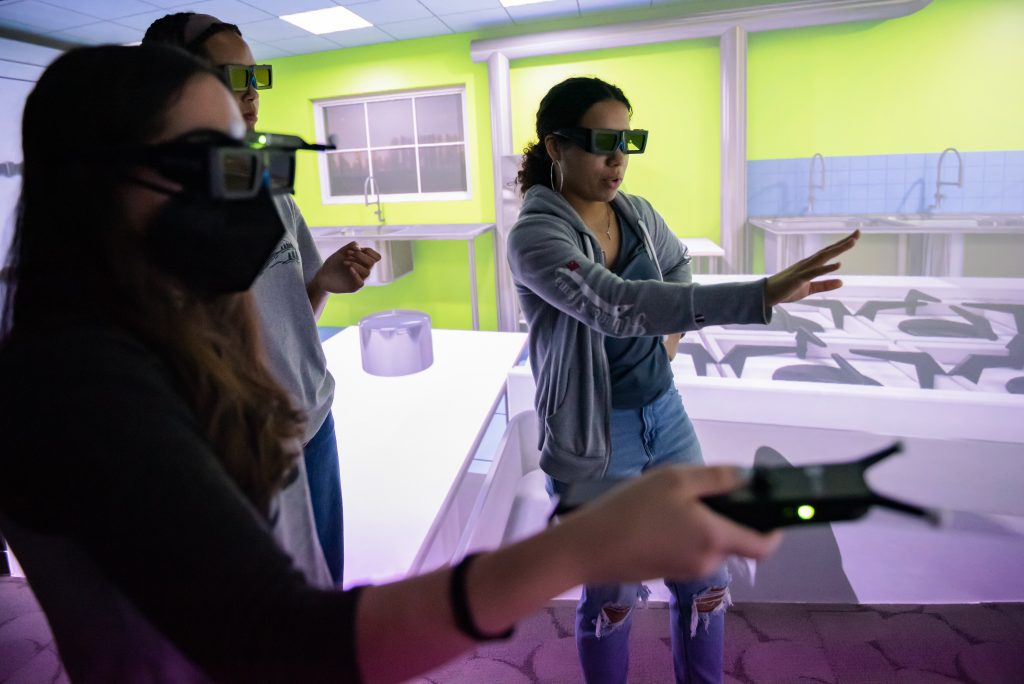New Virtual Reality Lab Opens Fresh Psychology Research Avenues

A new advanced virtual reality system in the Department of Psychology expands the experimental capabilities of researchers studying human behavior.
Virtual reality is prized for its capacity to recreate immersive real-world environments without compromising safety or the high costs linked to building and maintaining physical sets. It also offers the flexibility to quickly change parameters — a must for experimental work.
The latest system, installed by WorldViz, opens opportunities for deeper, more impactful experiments by offering high realism across two screens, plus hand tracking gloves and biofeedback sensor technology. It also includes four mobile stations that make it possible for researchers to conduct immersive experiments outside the laboratory.
“The new lab provides a lot of novel opportunities for psychology research,” said Associate Professor Corey Bohil, Ph.D.
One of the most unique features of the new lab is its emphasis on mobility. While most prior VR work was tethered to a single location, IMMERSE allows researchers to travel with their VR and AR displays. Bringing the system to, say, an office or even outdoors allows researchers to study people in their natural world. Boosting the value of the system is equipment that measures physiological responses like heart rate, brain activity and eye movement.
Installation and testing are now complete, freeing Psychology faculty to draft research plans. All three of Psychology’s research focus areas are taking advantage of the VR equipment: Human Factors & Cognitive; Industrial & Organizational; and Clinical Psychology. Bohil anticipates increased collaboration between researchers and, consequently, bigger breakthroughs.
“We’re excited to get started with our planned projects,” Bohil said.
